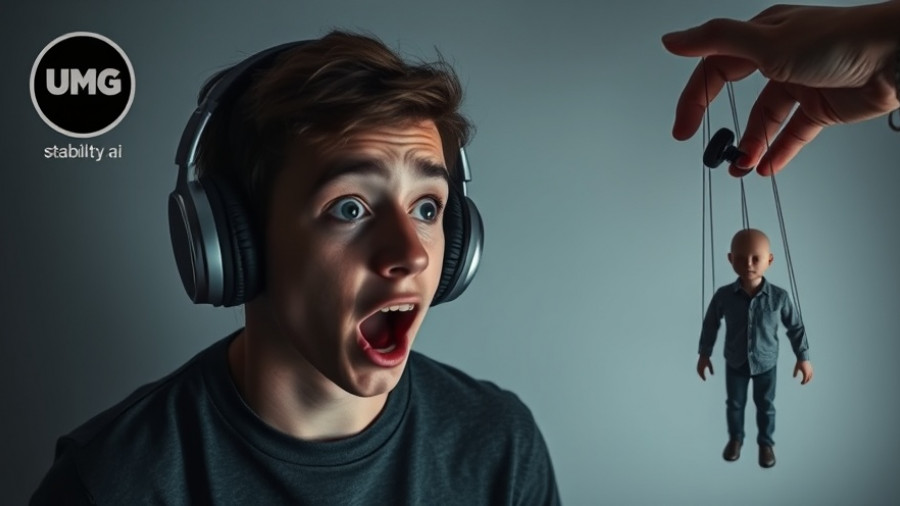
Understanding the Impact of AI Music Lawsuits on Innovation
The recent lawsuit situation surrounding AI music startups like Udo AI and Stability AI—especially their highly publicized partnership with Universal Music Group (UMG)—has sparked significant discussion within the tech and creative industries. This partnership has raised concerns among creators and consumers alike about the future of music innovation, especially considering that UMG wields considerable power over the music industry. One can’t help but wonder how much control this acquisition will grant UMG over AI-generated music and how it will affect the landscape for creators.
In 'AI Music Lawsuit Situation, Open Source AI Video, Home Robots', the discussion dives into the significant legal battles impacting AI innovations, exploring key insights that sparked deeper analysis on our end.
Could This Be the End for AI Music Startups?
Many are speculating whether the settlement and UMG's dominance point to a darker future for AI music startups. Udo AI is already taking major hits by restricting download capabilities, a direct consequence of UMG's pressure. While critically acclaimed AI tools emerge regularly, like Hail You AI’s Miniaax Music 2.0, will these companies be able to compete while facing potential lawsuits and related litigation costs? It appears that this partnership is less about fostering creativity and more about financial security for UMG, raising questions about the balance of power in AI music generation.
The Broader Implications for AI Technology
While the fate of specific companies like Udo and Stability AI hangs in the balance, it’s essential to understand that AI music generation isn’t going away. Organizations such as OpenAI are developing their own solutions, like Jukebox, that may defy UMG’s legal maneuvers. The emergence of open-source alternatives—especially some rooted in China—suggests that UMG's approach may be potentially short-sighted, likely alienating the very innovations that could propel the industry forward.
AI Video Generation: An Open-Source Future?
Transitioning to another facet of AI technology, open-source video generation is witnessing breakthroughs of its own. Models such as LTX2 focus on producing polished content while allowing users to generate their work without the complications of corporate litigation. Unlike the AI music space haunted by lawsuits, the video sector presents opportunities for creative exploration, showcasing how open-source alternatives can thrive without corporate constraints. As businesses advance, they might prioritize investing in platforms that encourage innovation without the threat of lawsuits hanging over them.
The Market Response: Where Do We Stand?
Consumer reactions across the board vary widely. For informed audiences, the controversy surrounding UMG's dominance in the AI music sector may catalyze more support for alternative platforms. As businesses adapt to AI technologies, marketable opportunities abound, particularly in AI marketing strategies that promote transparency in such tumultuous interactions between creators and corporate giants.
Conclusion: The Future of AI-Driven Creativity
As we continue to watch these developments unfold, business owners and creators must remain agile, adjusting their strategies to leverage the benefits and navigate around the limitations imposed but not limited to corporate control. These conflicts are a clear signal that the evolving landscape of AI music, video generation, and more will require resilience and innovation. The possibilities are expansive. GET STARTED WITH AI TODAY and explore how these technologies could transform your business model.
 Add Row
Add Row  Add
Add 




Write A Comment